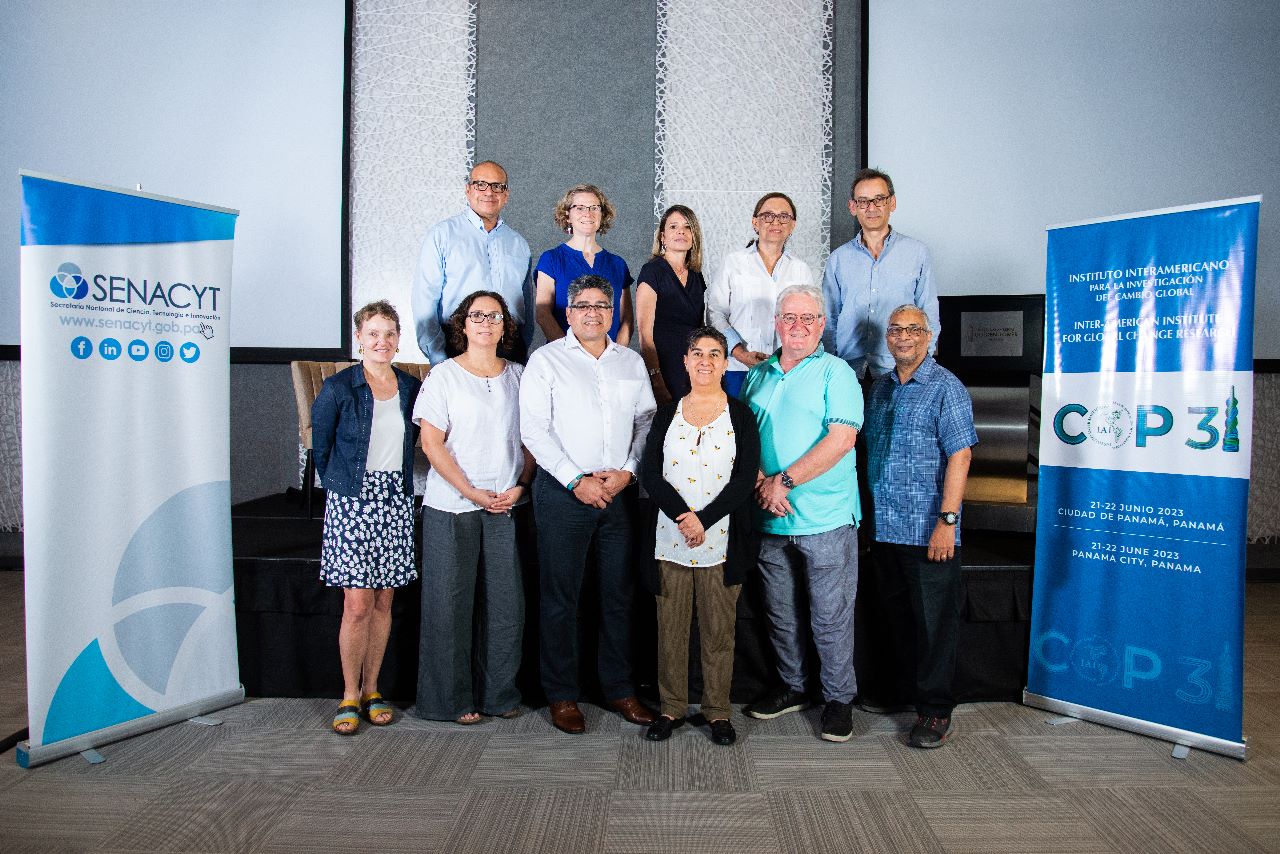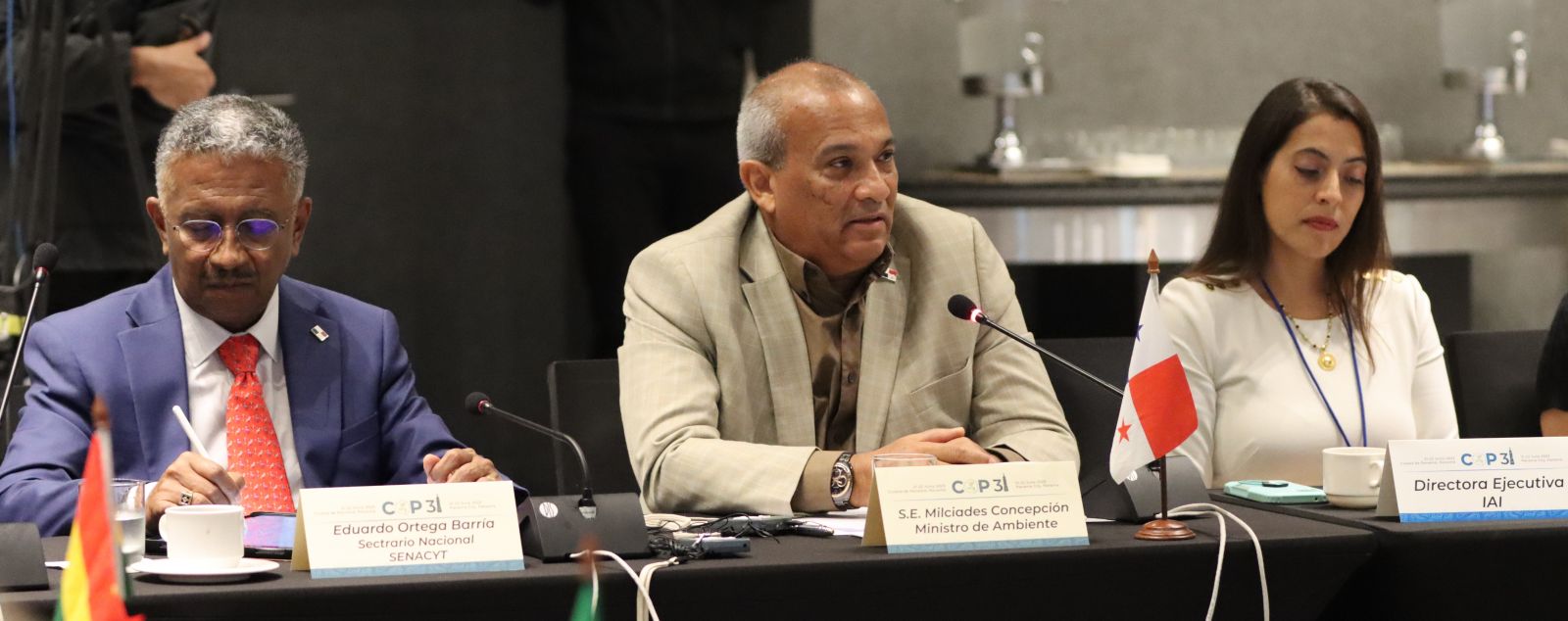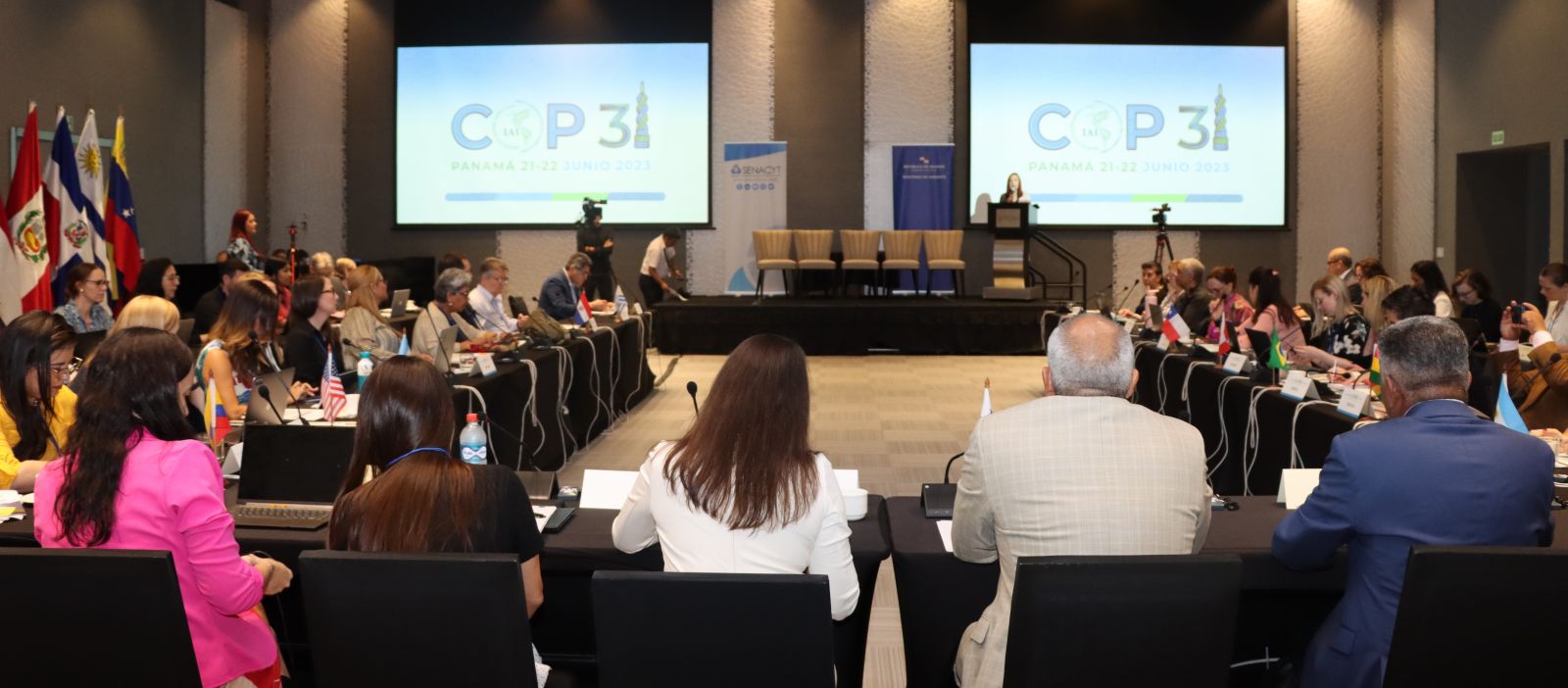Highlights of the 31st Conference of the Parties of the IAI

The city of Panama hosted the 31st meeting of the Conference of the Parties (COP 31) of the Inter-American Institute for Global Change Research (IAI) from June 21st to 22nd, 2023.
Attendees were welcomed by Milciades Concepción, Minister of Environment of Panama, Eduardo Ortega, National Secretary of Science, Technology, and Innovation of Panama (SENACYT), Anna Stewart-Ibarra, Executive Director of the IAI, Maria Uhle, President of the Executive Council of the IAI (National Science Foundation) and United States of America Focal Point.
During the COP 31 meeting, progress reports were presented by the Executive Directorate, IAI advisory committees, and the Center for Scientific Diplomacy on implementing decisions adopted in COP 30. These include the Report on the Implementation of the IAI Strategic Plan, the Report of the Gender and Equity Committee, the Report of the Committee for the Center for Scientific Diplomacy, and new scientific initiatives and funding opportunities such as the Initiative for Conducting a National Climate Assessment in Support of Adaptation and Mitigation: Training and Capacity Development in Latin America and the Caribbean.
Among the most important Decisions adopted during COP 31 are:
- To establish an Indigenous Peoples and Local Communities Advisory Committee (IP&LC-AC) to make recommendations to the Conference of the Parties thereby strengthening the work of the IAI and facilitating the equitable participation and contributions of Indigenous Peoples and Local Communities.
- To establish a research and training program on the nexus of climate, environment and health to support decision making by Parties, considering human health and the health of all life systems, in partnership with regional and global partners.
- To establish a research and training program on the nexus of oceans, islands, coastal systems aligned with the United Nations Decade of Ocean Science, to support decision making by Parties.
- To participate in the HydroClimate Research Program of the Andes (ANDEX), under the umbrella of the Global Energy and Water Exchanges Project (GEWEX) of the World Climate Research Programme, and link it with other regional and global platforms.
- To approve the creation of the IAI Science Diplomacy Center and its work plan for the first three years based on the recommendations of the Science Diplomacy Center Steering Committee.
The COP31 agenda and briefing papers are available here: https://www.iai.int/en/post/detail/CoP-31
Science Policy Briefing Session SGP
One of the parallel events of COP 31 was the science-policy presentations session with transdisciplinary team members of the Small Grants Program: The Role of Ecosystem Services in Adapting to Global Change for Human Well-being (SGP-HW).
Scientists and stakeholders from each team shared key policy-relevant findings with the IAI Focal Points, SAC, and SPAC members, and addressed their questions. Topics included water governance, ecosystem services and forest management. Discussions focused on how to deal with uncertainty and the role of participatory spaces in fostering the science-policy interface. Participants agreed that a shared understanding of the impacts of global change requires special attention to the unequal adaptation capacities of different communities, particularly in Latin America and the Caribbean.
You can learn more about the program at: https://www.iai.int/en/post/detail/small-grants-program-sgp-hw
Meeting of the IAI Scientific Advisory Committee (SAC) and Science Policy Advisory Committee (SPAC)

Parallel to COP31, the joint meeting of the Scientific Advisory Committee (SAC) of the IAI, chaired by Omar López (Technical Secretary of the National Research System of SENACYT), and the Science and Policy Advisory Committee (SPAC) of the IAI, chaired by Evelia Rivera (research professor at the Institute of Ecology, Fisheries, and Oceanography of the Gulf of Mexico, EPOMEX, at the Autonomous University of Campeche), took place.
During this meeting, the needs of the Parties to address the challenges of global environmental change were discussed, and the region's priority actions and scientific topics for the coming years were identified. Committee members discussed the process of updating the IAI Strategic Plan, which will guide the goals and actions of the organization for the next few years. To do so, they will use the Regional Assessment produced jointly by the Parties, advisory committees, and the Executive Directorate as a key source of information to establish priority lines of action in terms of scientific production and capacity building to address global environmental change.
Finally, the committees discussed key aspects of the IAI's role at the science-policy interface in the Americas, such as communicating the organization's activities, promoting science and open data, and strategically engaging in multilateral spaces.
More information on the IAI’s advisory committees can be found here: https://www.iai.int/en/structure/advisory-committee
Science Diplomacy Center (SDC)
As part of COP31, a parallel event was held by the Center for Scientific Diplomacy (SDC). The SDC is a regional initiative aimed at fostering scientific-policy dialogue and collaboration for a peaceful, prosperous, and sustainable Americas.
The meeting addressed the following topics: 1) Institutional Mechanisms for Scientific Diplomacy, 2) Capacity Development in Scientific Diplomacy, and 3) Emerging Issues and the Knowledge Center in Scientific Diplomacy.
You can learn more about the IAI Science Diplomacy Center here:


